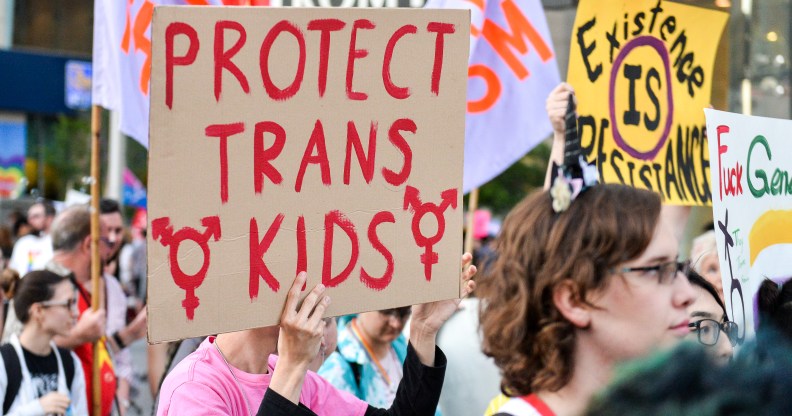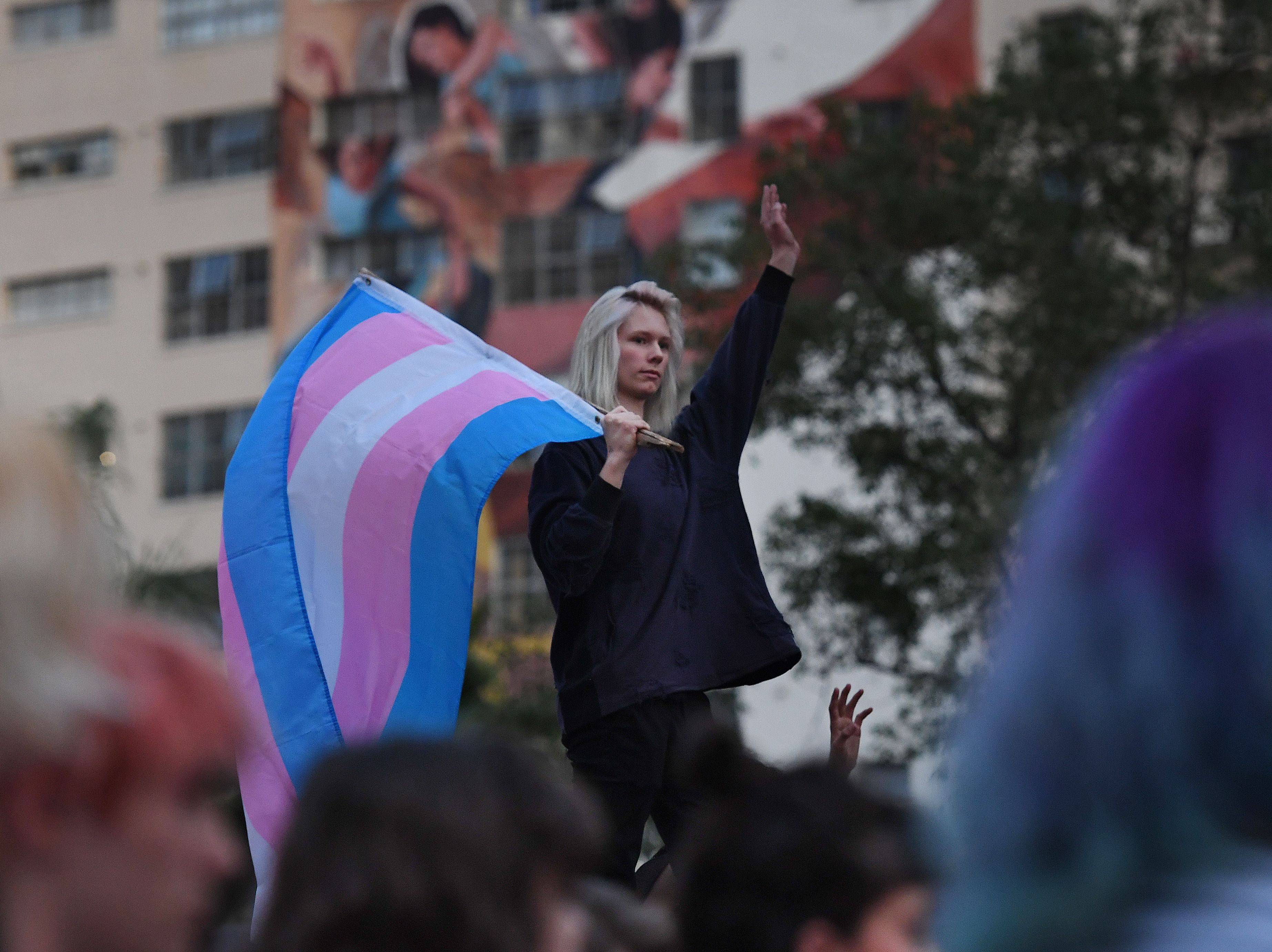Trans teen fears being ‘stranded’ between genders by his dad’s lawsuit to stop transition

(Anatoliy Cherkasov/SOPA Images/LightRocket via Getty)
A Canadian trans teenager, whose father filed a lawsuit to stop his hormone treatment, has been backed by the court after saying he would be left “stranded” between genders.
According to The Guardian, the 14-year-old came out as trans when he was 11 and suffered serious distress which led to a suicide attempt, the court heard. He cannot be identified because of a publication ban.
After consultations with medical professionals and the support of his mother, he requested and began receiving hormone treatment in March this year, but his father filed legal action to stop the gender affirming treatment.
He said in an affidavit read in court on Tuesday: “I will be stranded between looking and sounding feminine and looking and sounding masculine. I would feel like a freak.”
On Thursday, a panel of three judges upheld the decision of a lower court to allow the teen from Vancouver to continue his treatment.
According to CBC, the teenager quoted by his legal representation in court as saying since starting hormones: “It is so amazing to feel normal.” He also reported not feeling suicidal since receiving the gender-affirming care.

A trans flag is waved at a protest against the Trump administration’s attacks on the LGBT+ community, California 2018. (MARK RALSTON/AFP/Getty)
The trans teen’s father must refer to him with he/him pronouns, the court said
The hearing, which lasted three days, involved 18 lawyers representing the teenager and his parents, as well as public health officials and the local school board.
The father’s lawyer told The Guardian: “It’s a case about freedom of speech and the freedom to parent. It’s about the right of a parent to participate in the discussion on that issue.”
He argues that his child is too young to consent to treatment, and that too little is known about the long-term effects of hormone treatment.
However medical experts told the court that because he is already months into the treatment, many effects would not be reversible.
The teenager has had his name and birth certificate changed to reflect his male identity, and the original decision by the lower court said that the father must refer to him with he/him pronouns.
If he refers to him by his birth name or with she/her pronouns it would be considered family violence under British Columbia’s Family Law Act.
The Guardian reported that the father is still determined to block his son’s hormone treatment, and that written judgements would be released by the court in the next few months.

